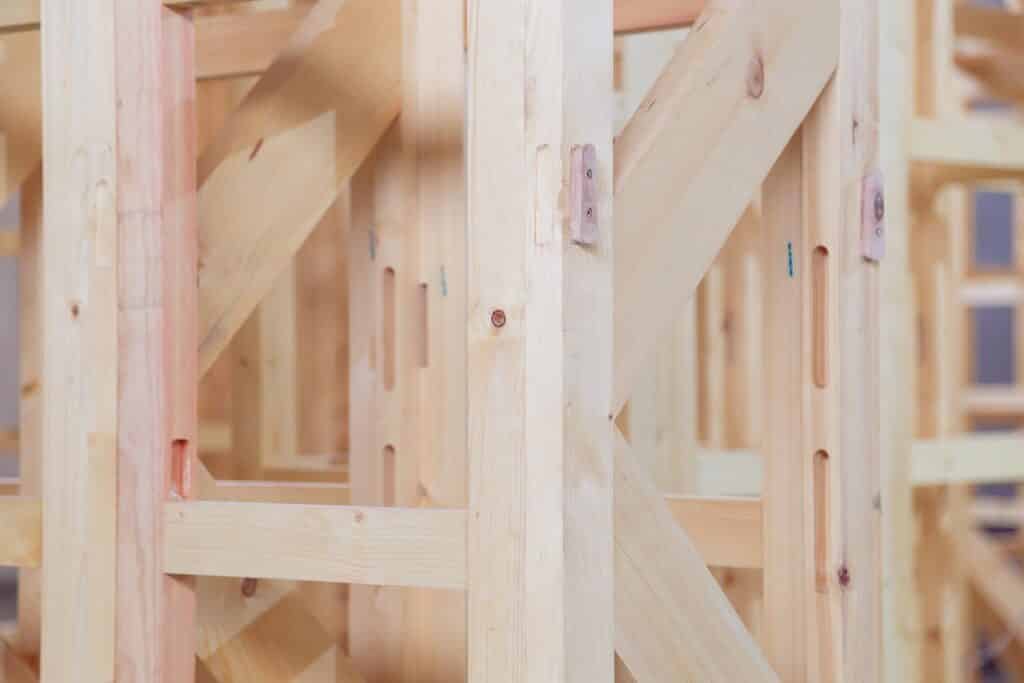Should you Renovate Your Existing Home or Build a New One?
Should you renovate your existing home or build new? There are a lot of factors that play into this question. all depends on your unique situation, how far off from the dream house you are, where you live, and what financial goals and plans you offer. What’s important to consider is considering the pros and cons of each path before deciding which one to take.
Both renovating and building new have their pros and cons. It all depends on your budget, the type of home you want, and other considerations. Ultimately it’s up to you which is right for your situation: renovating or building a custom home. While attempting to build a custom home, you may find that someone already has an almost perfect house built just waiting for some TLC or small adjustments to match your lifestyle; however, if this isn’t possible, then maybe renovation would be more appropriate.
In this article, we will look at the pros and cons of renovation and new building.
Should You Renovate?
Renovation refers to when you want to make changes to an existing structure for various reasons. The term “new construction” is pretty straightforward and can refer to a house that was designed and built from the ground up. It will have everything new on it-from the design of the building down to its installation.
Doing New Construction
As you consider whether to build a custom home, remember that throughout the process of designing and building it, you will be collaborating closely with your team (architect, builder, and interior designer) to make decisions about every element of your new home.
Doing a Renovation
Renovations can be a single-room remodel to a complete interior gutting, and it’s still up to you what the final product will look like. Your wishes must accommodate an already existing space, but there is still plenty of room for your ideas.
Ultimately, it’s up to you which is right for your situation: renovating or building a custom home. If you’re leaning toward building new, working with an experienced custom home builder in Asheville can help you understand the design options, costs, and long-term benefits of starting fresh with a fully personalized home.
The Benefits of Doing a Renovation
Renovating your home has many benefits that are worth exploring. You maintain a home you have lived in for years full of memories, and on a smaller scale, it can reset the clock on its age to an extent. Updates can make your existing home more environmentally friendly and energy-efficient!
Perhaps you need more space or want updates for your kitchen, bedroom, or living areas. Renovation covers all these things! In a historical neighborhood, renovating an old home that still has the charm of yesteryear while supporting a modern lifestyle satisfies your love to relive history and live in today’s world.
What to Consider Before Doing a Renovation
Before you begin to make any changes to an existing home, it is important that you learn as much about the house and its history as possible.
For example:
- Is the area worth renovating?
- What budget should be kept on hand when doing renovations so they can be completed while still keeping your total home value at a salable level?
- Do you have access to the original building plans for this property (if any)? If so, what alterations have been made in the past, and why were they necessary or desired?
- Are there hazardous materials present that may prohibit material removal or construction in some regions of your home (such as lead paint)?
Once you’ve learned as much about the history of your home as possible, check to make sure the foundation is sound and healthy. If it’s cracked or compromised, there isn’t a reason for going through with pricey renovations if parts of it are damaged beyond repair. Depending on the damage you find in your house, demolishing old parts may be a better idea than investing money into expensive renovations that won’t last anyway.
Historical neighborhoods often have restrictions on the changes you can make to an old home. The restrictions are even tighter for homes on the Historical Register. It is essential to study local regulations and building codes or bring a builder in early so that they can.
Ask your builder about any new construction code updates since this house was built! For example, will rewiring the renovated portion be necessary, or will I need to rewire throughout my property once the existing wiring is examined? Will renovations still make fiscal sense if mechanical systems require complete renovation?
Any home renovation project requires some careful consideration. The parts of the house that are not renovated may require more maintenance than the newly-built spaces in a short period of time. System upgrades could reduce the number of repairs and replacements needed in the near future, so it is worth considering when you plan your renovations.
The Benefits of Building a New Home
Building a new custom home requires lots of decisions and planning, but there are benefits to this type of house. Your maintenance and repairs should be minimal because everything is new and under warranty. It also offers the chance to use sustainable materials or design an environmentally efficient home with future technology in mind. You can plan for things like expanding the electrical system to accommodate today’s devices, so your modern electric needs will still be met as they evolve; you have more options in terms of outputting specific layouts or floor plans that best suit your project requirements; you don’t need to try fitting ideas into existing layouts or structures; it lets you choose which layout works best for your unique project needs long-term (e.g., having larger living spaces).
From the location and orientation of the home to the landscaping, the floor plan, and the type and placement of windows, every detail is up to you. A custom home can offer greater flexibility in the design. Alternatives like modular or prefabricated homes are often easier to customize, too. There are many ways to make a new home feel like it’s been there for decades. From materials to layout, every detail is a chance for expression. You can incorporate elements and designs from other houses or structures to make your new home truly one of a kind.
New Home Building Considerations
Building a house can be more complicated than most people anticipate. You’ll want to consider the following building environment factors:
- Local codes and regulations
- Weather conditions (such as temperature, wind, hail) and environmental surroundings (floodplain)
- Soil type will impact your foundation design and restrictions in place, such as architectural style or roofing materials, among other things.
- What architectural style is followed in the neighborhood, and what materials and labor are available?
- What are the materials and labor availability?
When choosing a new custom home, assemble your team (architect, builder, and interior designer) to help you answer these questions. Each member brings different skill sets and experience, which can combine to create the perfect house for you!
When you are designing your home, take into consideration the things that will affect its use. What sort of living areas do you need to fit your lifestyle? How much room do you need? Do you plan on aging in place, or does an elderly family member live with a child in the house?
If anything specific about this new home must be included, make sure everyone understands what those requirements are. Details can often help and so go ahead and include them (but don’t feel obliged if it doesn’t seem necessary). With this being a new build, there will be many decisions to make, but don’t worry; our design team can provide advice when needed!
Construction in a new home is going to take longer than renovations can. More time will be needed for approvals and permits, site preparation, and all construction phases.
Comparing Home Renovation to Building a New Home
The decision to renovate or build new depends on individual factors that are different for each person and situation.
It is much easier to determine a layout; renovation limits the changes available. The building will take less time than remodeling an existing house, but there can be weather delays in completing the exterior construction before the harsh winter months arrive.
The cost, depending on how extensive your renovations will be in comparison with what you currently have in place, could vary greatly-there may even be unexpected findings leading to increased costs along the way if you decide not to do an entire interior project like adding insulation or changing outdated electrical/plumbing systems; this type of project would also ensure no asbestos found during the inspection as well as rotted wood being replaced where needed while meeting all codes necessary by law which would result from starting fresh without any surprises lurking behind sporadic walls waiting for someone else’s discovery later down the road when things don’t seem quite right.
Your needs and budget help decide whether you want something already in place ready for use now (renovated) or create one from scratch that has custom features specific only to your requirements (new).
You Make the Final Decision
This decision is up to you, but it will rely on your needs and budget. Renovating an already existing home can be a great alternative if you love the one in place. New builds are still viable for those who want their homes built specifically for them without any compromises or limitations imposed by renovations. If this sounds like something that interests you – please feel free to reach out to our team! We’re always here to help!

